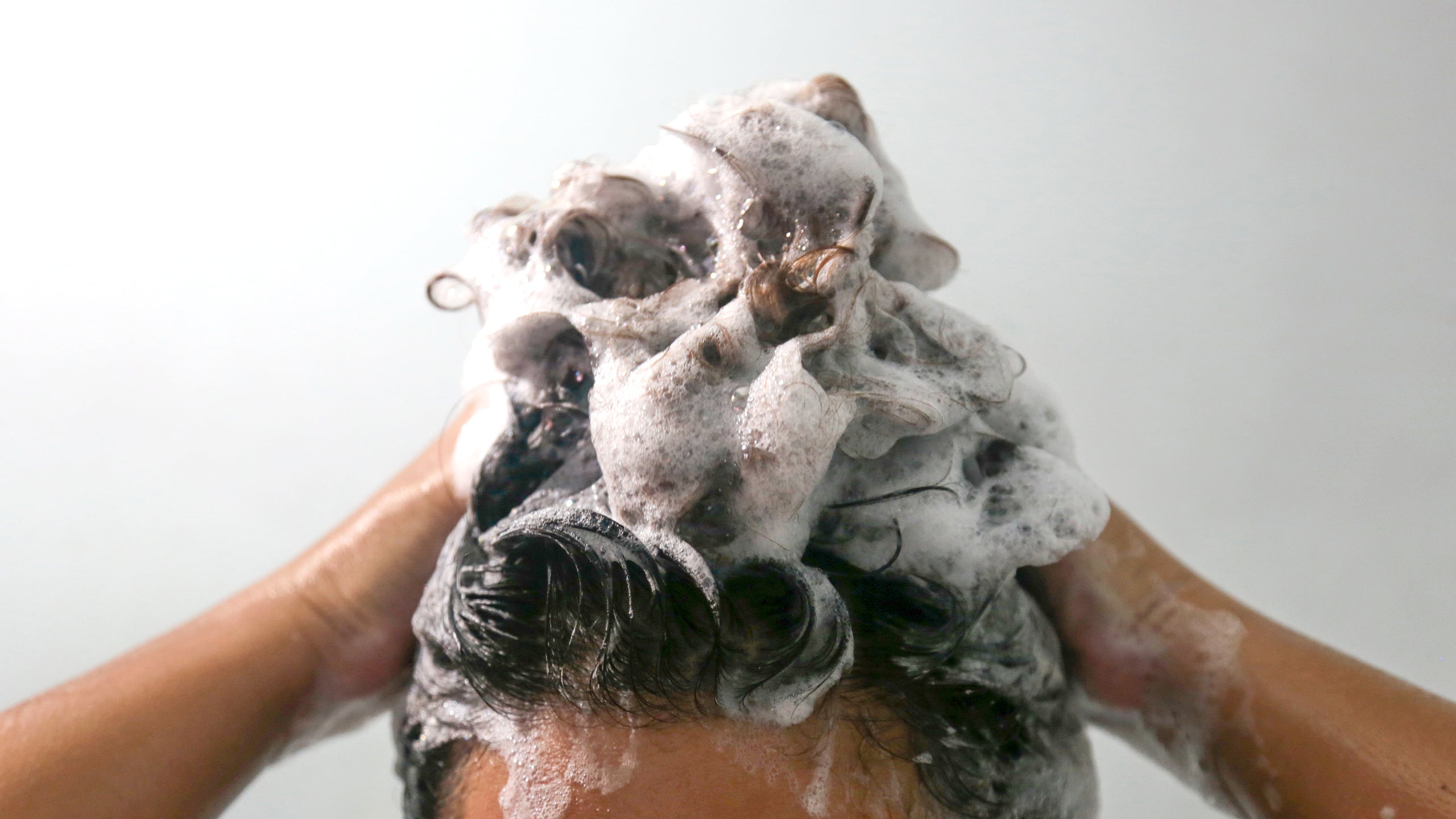When you look at beauty products, you’ve probably seen the phrases “paraben-free” and “sulfate-free” on the front of different products like shampoos and lotions before.
In recent years, new research has brought up a lot of concern about the use of these artificial ingredients in cosmetic products, so many companies are starting to forego them.
It feels like the list of ingredients to avoid for your skin continues to grow exponentially, and it can be hard to keep up. So if you’ve wondered, “What are parabens and sulfates? Why are they bad?”, we’re here to help!
What Are Parabens? What Does “Parabens” Mean?
The term “parabens'' refers to a group of chemicals derived from para-hydroxybenzoic acid (PHBA). Parabens are used as preservatives in many cosmetic products and skincare products, because they help reduce the growth of microorganisms (such as bacteria or mold) due to their antimicrobial capabilities. This, in turn, increases products’ shelf lives.
Are Parabens Bad?
Parabens have been used since the 1920s, but research now shows these artificial preservatives act as endocrine disruptors, meaning parabens can mimic estrogen in the body. This estrogenic activity can harm reproductive organs in both males and females and increase the risk of certain cancers, including breast cancer.
Aside from the worrisome effects parabens can have on your endocrine system, the Environmental Working Group (or EWG) found strong evidence that parabens act as a skin toxicant/allergen. That’s why if you’re struggling with skin conditions like redness, eczema, or any type of sensitive skin, we highly recommend cutting out parabens to see how the skin improves.
Evidence shows the skin easily absorbs parabens into the system and build-up can occur, so daily use of paraben-containing cosmetics poses a risk. Because of parabens’ ability to cause endocrine disruption and irritate the skin, more companies are going paraben-free.
How to Look for Parabens
Everything from hair care products like shampoo and conditioner to lotions, sunscreen, and deodorants can contain parabens. When you’re looking at cosmetic ingredient labels, look for the words:
- Butylparaben
- Methylparaben
- Propylparaben
- Isobutylparaben
- Ethylparaben
- Isopropylparaben
These are all different types of parabens that can be found in your products, but butylparaben, methylparaben and propylparaben are most commonly found.
Insider tip: If you see “parahydroxybenzoate” anywhere on an ingredient label, that also means parabens!
What Are Sulfates?
Hopefully now you have a better understanding of parabens and how the use of parabens affects the skin. However, we want to quickly talk about another pesky group of additives that’s also often added to skincare products: sulfates.
Sulfate forms when sulfuric acid reacts with another chemical to create salt (sulfate). It’s often the term used to also describe synthetic sulfate-based chemicals used in cleaning and personal care products.
You may see these synthetic ingredients listed as sodium lauryl sulfate (SLS) or sodium laureth sulfate (SLES). These additives are often used to create lather, which gives the consumer the impression of greater cleanliness — even though lather isn’t needed to clean!
While there isn’t as much research to back up the negative health effects of sulfates as there is for parabens, they both have the potential to irritate the skin, especially if you have sensitive skin, and should be looked out for on product labels.
Check for sulfates in liquid soaps, hair care products, laundry and dish detergents, toothpaste, and more.
Sulfate- and Paraben-Free Products
So yes, parabens help keep products fresh and effective for months or years at a time. However, evidence continues to suggest the negative health effects parabens have on the reproductive systems of both men and women far outweigh the benefits.
Because of this, paraben-free products are becoming easier to find. Just look for “paraben-free” on the front of your personal care products and scan the ingredients labels for parahydroxybenzoate or any of the parabens.
Here at Gladskin, we know that parabens aren’t part of the equation of, well, glad skin! That’s why all of our creams, washes, and shampoos are created paraben-free. We want you to feel good about what you’re putting on your body on a daily basis!
Shampoo is one of the biggest culprits for sulfates and parabens. That’s one of the reasons we just launched the brand-new Gladskin Shampoo Bar, safely formulated with minimal ingredients to gently cleanse your scalp. We don’t use any preservatives, fragrances, or harsh detergents found in typical shampoos that disrupt skin microbiome balance or exacerbate common skin concerns like eczema or redness.
Takeaways
Many products contain parabens as a way to preserve products and help protect consumers. However, research shows these artificial additives may be doing more harm than good. Researchers have found parabens to have a negative effect on both male and female reproductive systems — and many worry about a possible connection to increased risk in breast cancer.
Although the FDA doesn’t currently provide any regulation around the inclusion of parabens in cosmetics, more consumers are opting to go paraben- and sulfate-free to help avoid skin irritation and other unwanted possible side effects of paraben usage.
If you choose to go paraben-free and sulfate-free, Gladskin is here to help.

